Doctors Share 9 Signs You Have “Healthy Poop”—And What to Do If You Don’t
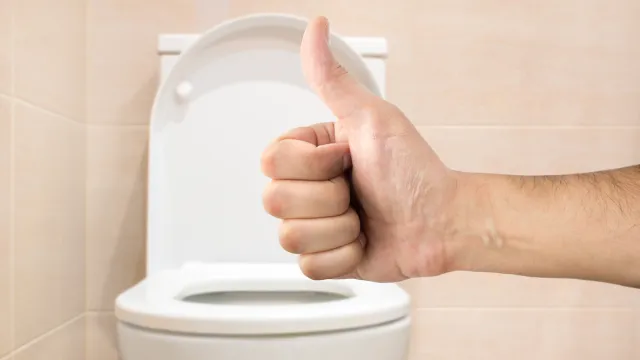
It may be taboo to talk about your bowel movements, but that’s precisely why many people overlook the signs and symptoms that something is awry in their gastrointestinal system. Changes in your stool can signal a wide range of underlying conditions: poor nutrition, infection, organ problems, digestive disorders, and cancer are just a few examples. The color, consistency, shape, and frequency of your bowel movements can all offer clues into your body’s inner workings. It’s equally important to recognize the signs that you have “healthy poop”—usually the result of a good diet, adequate hydration, exercise, and proper digestive function.
Recognizing this will tell you that you’re on the right track to a thriving gastrointestinal system and good gut health. Wondering if your own bathroom habits are considered normal? These are the nine signs that you have healthy bowel movements, according to doctors.
RELATED: 10 Safe and Easy Ways to Poop Instantly.
What does healthy poop look like?
1. It’s medium-dark in color.
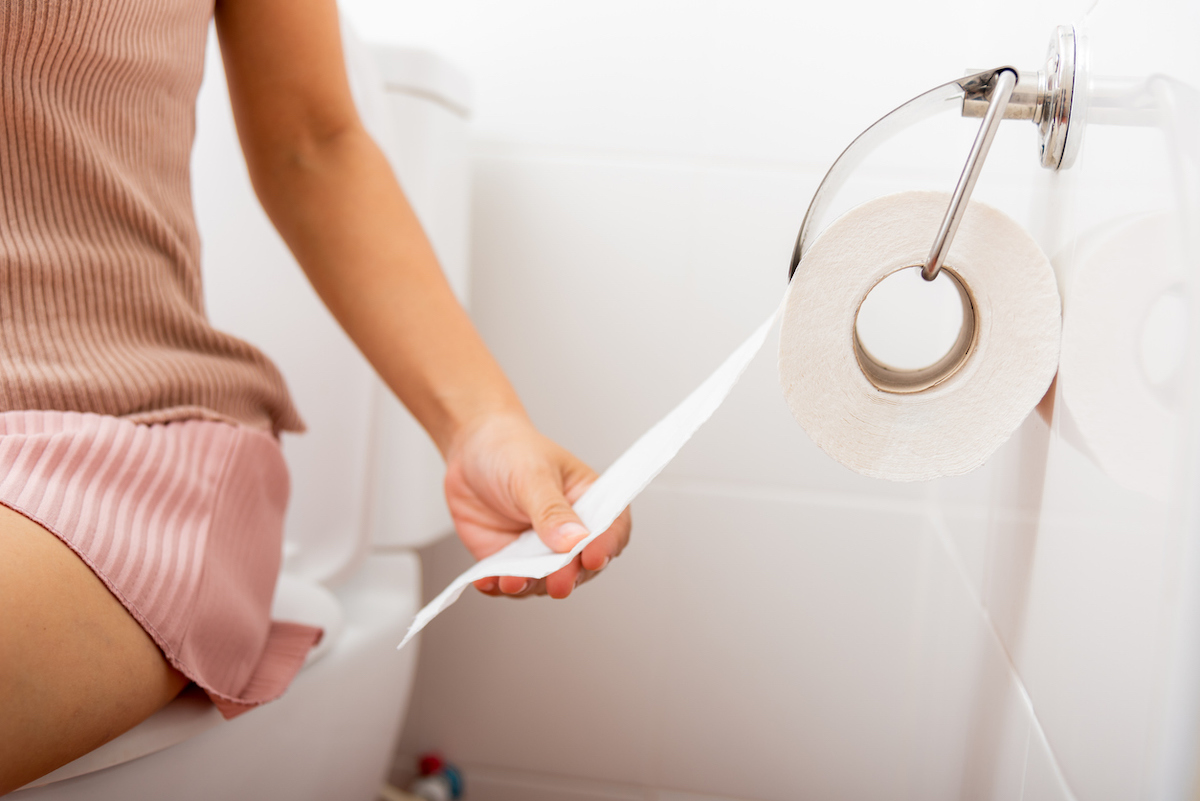
Doctors say the color of your stool can clue you in to whether or not it’s healthy. Leann Poston, MD, MBA, a physician and medical writer for Invigor Medical, explains that your poop should be “brown to light brown and not gray, yellow, black, or red.”
“Sometimes, the stool will assume the color of food or drink, but this will be temporary,” she tells Best Life. “Bilirubin, a pigment from recycled red blood cells, gives stool its color.”
Pale or light-colored stool can indicate a health problem affecting the biliary system, which serves as a drainage system for the pancreas, liver, and gallbladder.
“If it’s a lighter color poop and it’s floating, that can indicate that you’ve got some liver and gallbladder issues that need to be addressed,” naturopathic doctor Janine Bowring, ND, said in a recent TikTok post.
If you notice this symptom, she recommends taking a turmeric supplement with a high concentration of curcumin to improve your liver and gallbladder function. It’s also important to discuss your concerns with your doctor.
2. It shows no sign of blood.
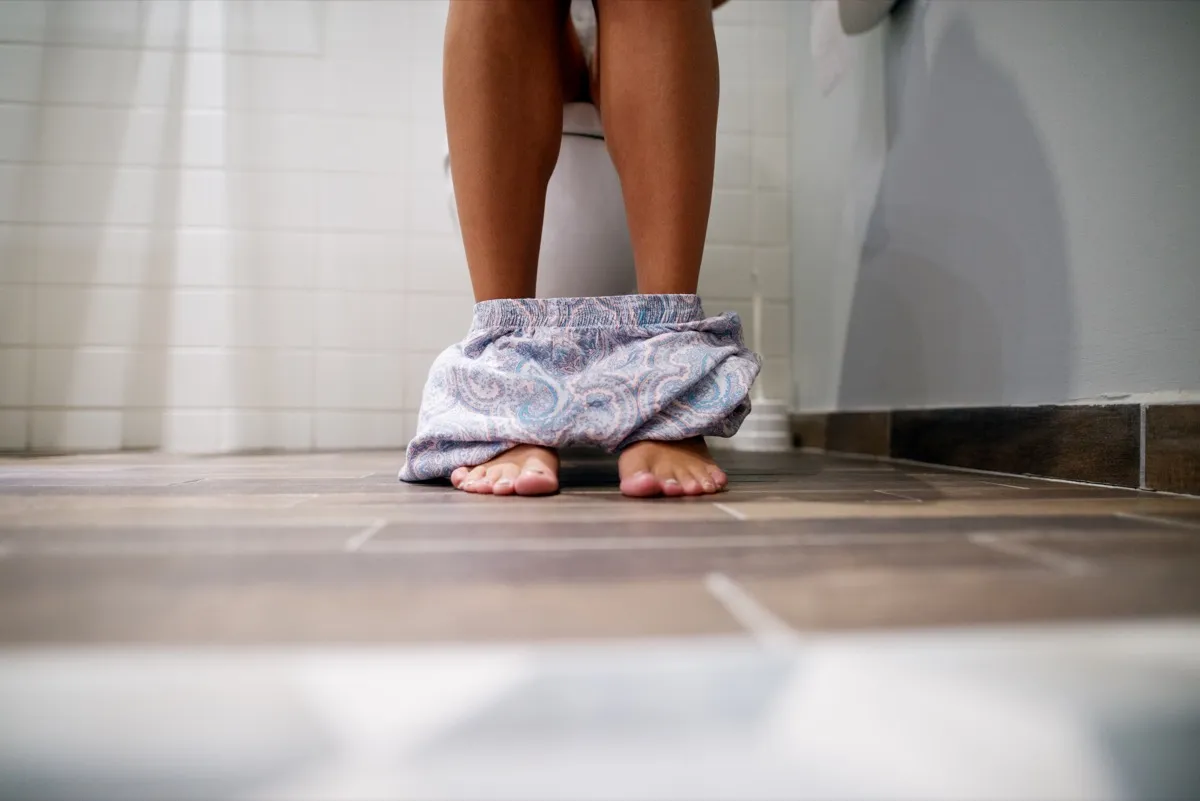
If your bowel movements are far darker than normal or tarry in appearance, this can be a sign of internal bleeding in the upper digestive tract or stomach.
“Bright red blood can also suggest lower intestinal bleeding such as from the colon,” says Natasha Chhabra, MD, a board-certified gastroenterologist at Gastroenterology Associates of New Jersey.
Though dark or bright colored blood is not always cause for concern—”either can occur due to something you consumed,” Chhabra says—it’s a good idea to consult with a gastroenterologist if you notice this symptom, the doctor notes.
RELATED: 4 Best Fruits to Erase Bloating, Science Shows.
3. It doesn’t float.

Bowing said in another TikTok post that if your poop is healthy, it should sink rather than float. If your stool floats and has a greasy consistency, this can indicate nutritional malabsorption or gastrointestinal infection.
However, floating stool is rarely indicative of a health problem if it’s your sole symptom. This is most often due to dietary changes, or increased gas in the intestines.
4. It’s formed, but not too formed.
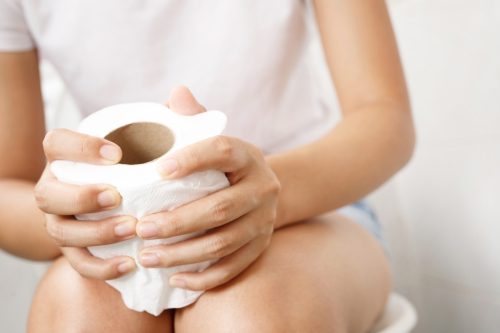
Bowing says the next way to determine if you have healthy poop is to take note of whether or not it holds its shape. If your stool is healthy, “it’s nice and long and formed, but it breaks up a little bit when you flush the toilet, meaning that it’s not too solid,” she says.
Poston agrees that your stool should “be formed but not pencil-thin or pebble-like.” She adds, “Pencil-thin stool may indicate a narrowing in the intestines, while hard, pebble-like stools are common with constipation.”
If you do struggle with constipation, Bowring recommends massaging the ileocecal valve, located directly below the belly button, and increasing your fiber intake.
RELATED: 5 Doctor-Recommended Ways to Stay Regular in the Bathroom.
5. It’s not watery.
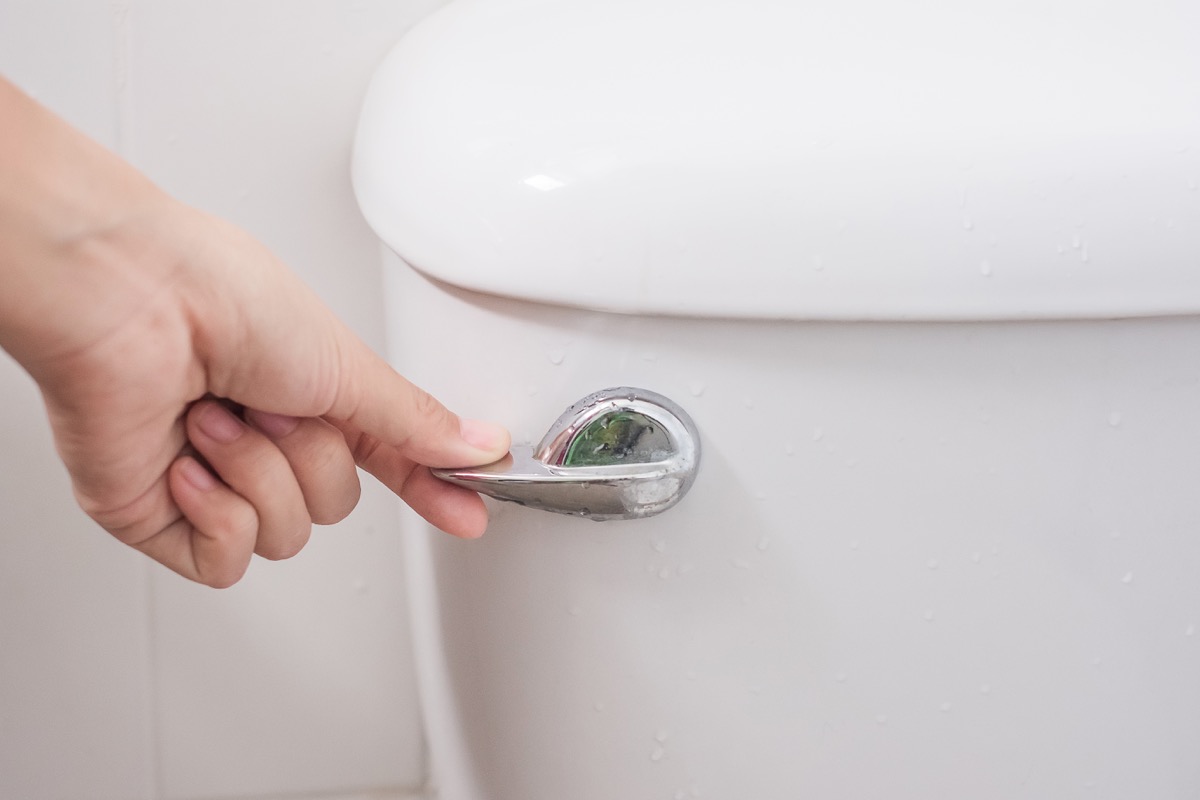
Poston says that when you have watery stool, this indicates that waste is moving through the gut too quickly. “Water is not being reabsorbed into the body and is lost in the stool,” she explains.
“Loose, watery, and frequent stool suggests diarrhea,” Chhabra tells Best Life. She adds that there’s a range of possible underlying causes, including infection, diet, medications, or gastrointestinal conditions such as colitis.
If you do suffer from diarrhea or watery stools, the Mayo Clinic recommends drinking plenty of fluids; eating simple, semi-solid and low-fiber foods; avoiding fatty foods; and talking to your doctor about anti-diarrheal medications.
6. It passes without strain.

Poston says that when your poop is healthy, it should be “soft enough to assume a C-shape and easy to pass without straining.” She adds that excessively hard stool can be a sign of dehydration.
If you regularly strain during bowel movements, this can cause certain complications, including hemorrhoids, fissures, and muscle or nerve damage, the Cleveland Clinic says. Speak with your doctor if you’ve noticed frequent hard stools, frequent straining, the inability to fully evacuate your bowels, or fewer than three bowel movements per week.
RELATED: What Really Happens to Your Body If You Don’t Go to the Bathroom Every Day.
7. It goes down the pipes without flushing.
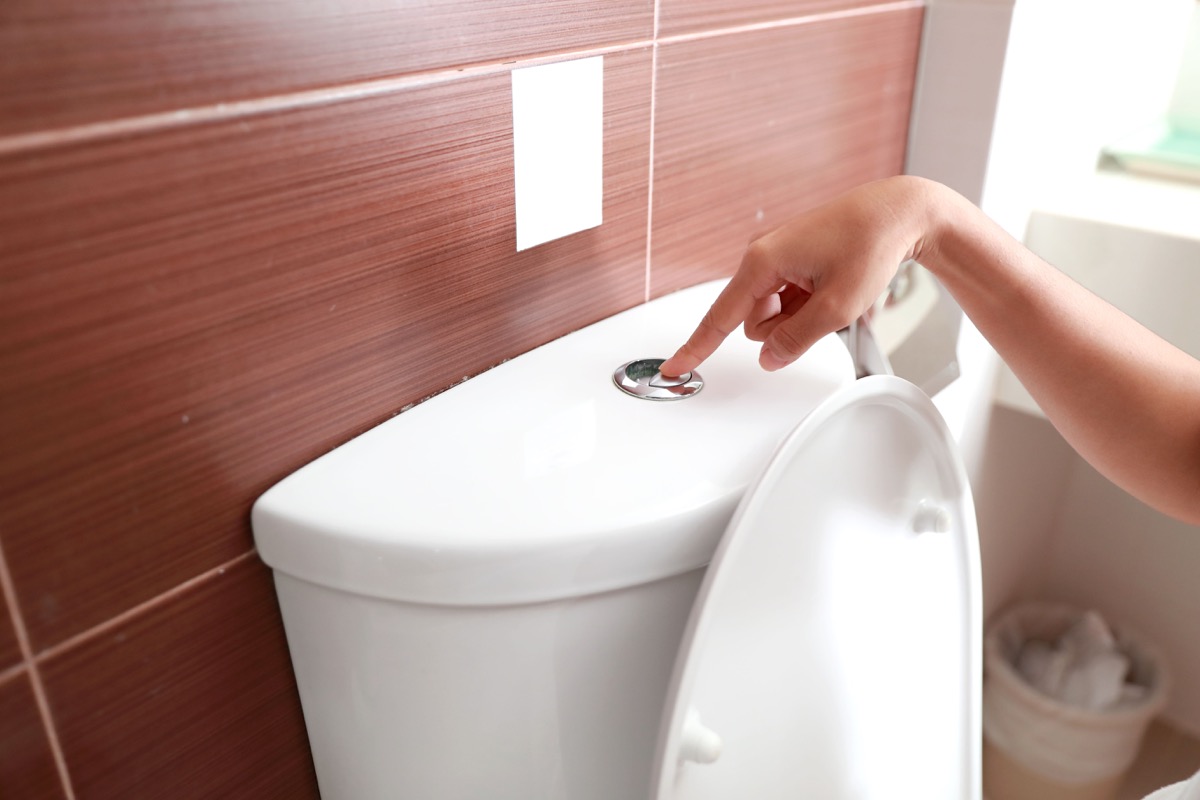
Bowring describes another sign that your bowels are healthy, which she calls “ghost poops.” This is when your stool “takes itself down the pipe,” she explains.
“If you have this type of poop, you might just be the healthiest person on the planet,” she said in a recent TikTok post. “You look in the toilet and you’re like, ‘I’m sure I pooped,’ but it’s gone.”
The doctor says this happens when you’ve had plenty of fiber and essential fatty acids, and your circadian rhythm is “in tune with nature and the light and dark cycle of the day.”
8. It doesn’t contain much mucus.
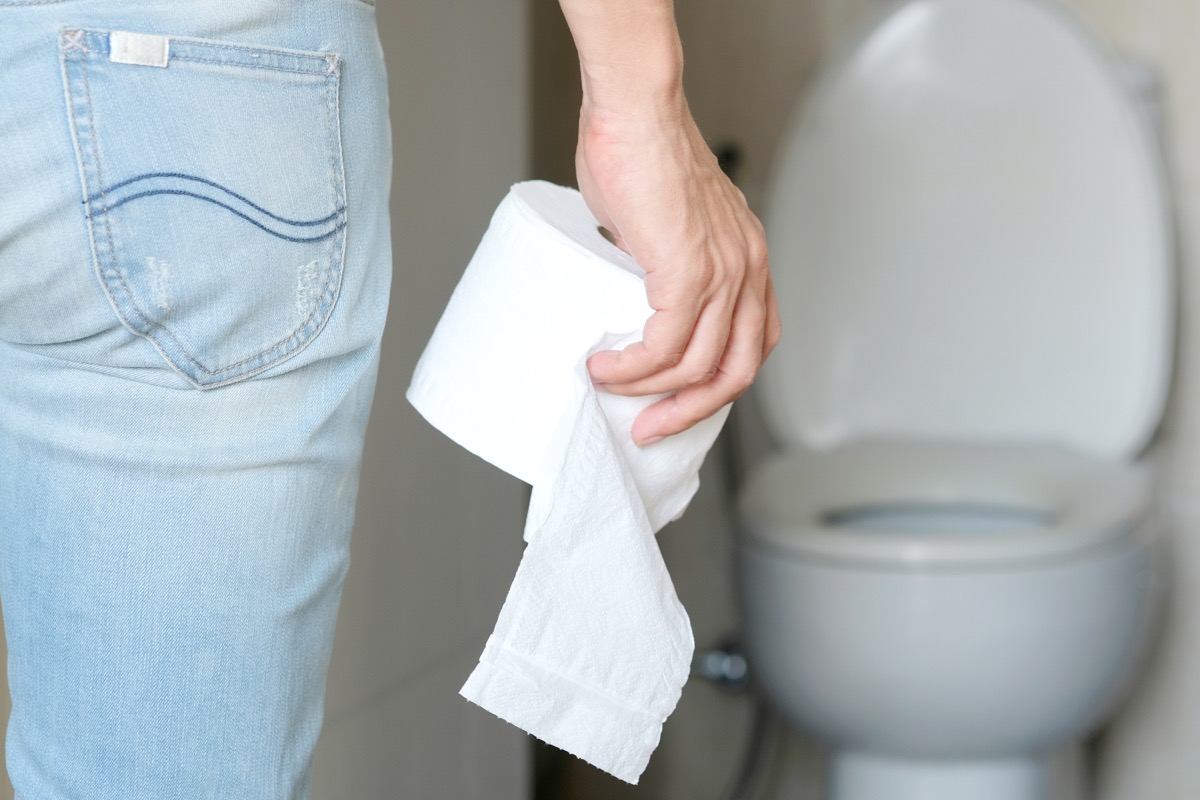
Though having small amounts of mucus in your poop is considered normal—this helps to lubricate it as it moves through your intestines—having excessive amounts can signal a health problem, Poston says.
If you notice the amount increasing, it’s worth mentioning to your doctor, the Mayo Clinic says. “Larger amounts of mucus in stool, associated with diarrhea, may be caused by certain intestinal infections. Bloody mucus in stool, or mucus accompanied by abdominal pain, can represent more serious conditions—Crohn’s disease, ulcerative colitis and even cancer,” their experts note.
RELATED: 3 Signs You Have Clear and Healthy Bowels, Nutritionist Says.
9. You have regular bowel movements.
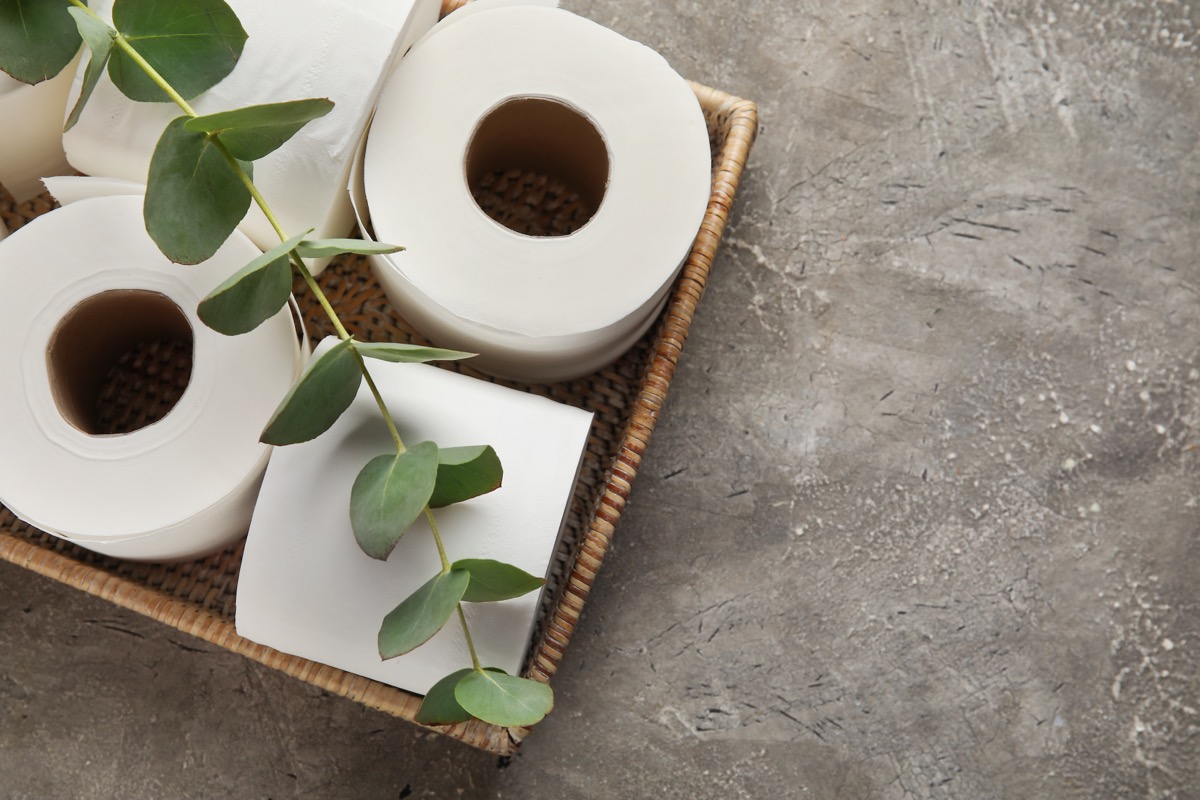
Finally, the frequency of your bowel movements can also suggest a healthy or unhealthy digestive system. In fact, according to UCLA Health, having regular bowel movements is the “top indicator of a healthy digestive tract.”
“Normal bowel movements range from once a day to every few days, depending on the person. Sudden changes in frequency could signal underlying issues, such as dietary changes or gastrointestinal disorders,” says Raj Dasgupta, MD, an internal medicine specialist and Chief Medical Advisor for Sleep Advisor.
If you’re concerned about what your bowel movements tell you about your overall health, keep track of any changes and report them to your doctor, Dasgupta suggests.”They may recommend tests and lifestyle adjustments to address any underlying issues and get your bowel health back on track,” he says.
Best Life offers the most up-to-date information from top experts, new research, and health agencies, but our content is not meant to be a substitute for professional guidance. When it comes to the medication you’re taking or any other health questions you have, always consult your healthcare provider directly.
- Source: Mayo Clinic: Diarrhea
- Source: Cleveland Clinic: Obstructed Defecation
- Source: Mayo Clinic: Mucus in stool: A concern?